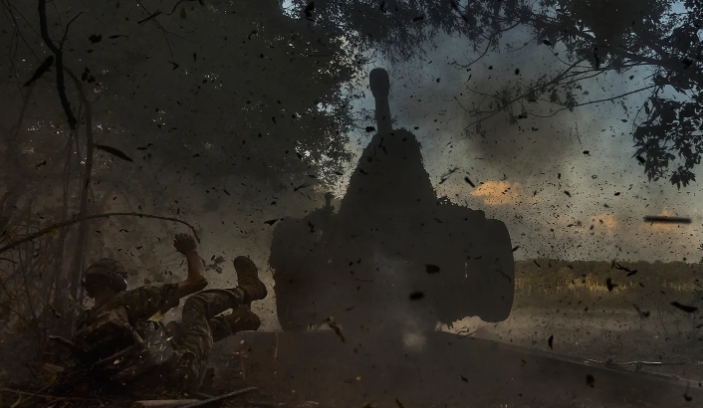In the face of escalating global tensions, the possibility of World War III looms over the horizon. This prospect necessitates a thorough understanding of its potential global economic impact. Preparing for World War III involves assessing how such a conflict could disrupt economies worldwide, affecting everything from financial markets to international trade.
The Immediate Economic Shock
The onset of World War III would likely trigger immediate and severe economic shocks. Stock markets around the globe could experience unprecedented volatility, with investors reacting to the uncertainty and potential for widespread destruction. Currency values would fluctuate wildly as nations scramble to secure their financial positions. This initial shock would set the stage for longer-term economic repercussions.
Preparing for World War III: Assessing the Global Economic Impact
Disruption of Global Supply Chains
One of the most immediate impacts of World War III would be the disruption of global supply chains. Modern economies are intricately interconnected, relying on the seamless flow of goods and services across borders. A major conflict would sever these connections, leading to shortages of essential products and raw materials. Industries such as manufacturing, technology, and pharmaceuticals would be particularly hard-hit, causing production delays and skyrocketing costs.
Inflation and Currency Devaluation
The economic instability brought on by World War III would likely result in rampant inflation and currency devaluation. Governments might resort to printing money to finance military efforts, leading to hyperinflation in the worst-case scenarios. Currencies would lose value rapidly, diminishing purchasing power and leading to a decline in living standards. Countries heavily reliant on imports would struggle to afford basic necessities, exacerbating the economic crisis.
Unemployment and Labor Market Disruptions
The labor market would not be immune to the effects of World War III. With industries facing disruptions and economic activities grinding to a halt, unemployment rates would soar. Millions could lose their jobs as businesses shut down or scale back operations. The resulting loss of income would further depress consumer spending, creating a vicious cycle of economic decline. Additionally, conscription and enlistment would deplete the workforce, impacting productivity and economic output.
Impact on International Trade
International trade, a cornerstone of the global economy, would face significant setbacks during World War III. Trade routes could be blockaded or rendered unsafe, halting the flow of goods between countries. Tariffs and trade barriers might be imposed as nations seek to protect their domestic industries. The resulting decline in trade would stifle economic growth, with export-oriented economies feeling the brunt of the impact. The breakdown of trade agreements could lead to long-term diplomatic and economic isolation for some nations.
Financial Market Turbulence
Financial markets would experience extreme turbulence in the event of World War III. Stock exchanges could crash, wiping out trillions of dollars in value. Investors would flee to safe-haven assets like gold, causing prices to soar. The bond market might face unprecedented stress as government debt levels rise to fund the war effort. Central banks would be under immense pressure to stabilize the financial system, employing measures such as interest rate cuts and quantitative easing. However, these actions might only provide temporary relief in the face of deep-seated economic turmoil.
H3: Long-Term Economic Consequences
The long-term economic consequences of World War III would be profound and far-reaching. Reconstruction efforts would require massive investments, straining already weakened economies. Public debt levels would soar, necessitating austerity measures and tax hikes that could stifle economic recovery. The global balance of economic power might shift, with emerging markets potentially gaining prominence as traditional economic powerhouses struggle to rebuild. Innovation and technological advancements could be delayed, further slowing economic progress.
Conclusion
Preparing for World War III involves understanding the multifaceted and severe economic impacts such a conflict would entail. From immediate shocks to long-term consequences, the global economy would face unparalleled challenges. By assessing these potential impacts, policymakers and businesses can develop strategies to mitigate risks and enhance resilience in the face of this daunting scenario.
FAQ
Q: What are the first signs of economic impact if World War III were to begin?
A: The first signs would likely include extreme volatility in stock markets, rapid currency fluctuations, and disruptions in global supply chains.
Q: How would inflation be affected by World War III?
A: Inflation would likely skyrocket as governments print money to finance the war, leading to currency devaluation and a significant loss of purchasing power.
Q: What industries would be most affected by the disruption of global supply chains?
A: Industries such as manufacturing, technology, and pharmaceuticals would be heavily impacted due to their reliance on the seamless flow of raw materials and components.
Q: How would international trade be impacted?
A: International trade would face significant setbacks, with trade routes potentially blockaded and new tariffs and trade barriers imposed, leading to a decline in economic growth.
Q: What long-term economic changes could result from World War III?
A: Long-term consequences could include massive reconstruction costs, increased public debt, a shift in global economic power, and delayed innovation and technological progress.
